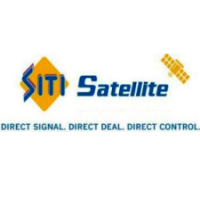HITS finds no takers as MSOs await transponders and comprehensive policy
MUMBAI/NEW DELHI: On 31 March, Wire and Wireless (India) Ltd. ended its only Headend-In-The-Sky (HITS) service in the country after making no impact on the market, sinking in losses of over Rs 1 billion.
Four months later, the scenario is no different and the technology that would have put digitisation on the fast track stands unused. Several multi-system operators (MSOs) have applied for a HITS licence but are not particularly enthused as they await a more comprehensive policy.
“We want the government to allow the DTH signals to be used for HITS. This would save the sector from duplication of transponder use. There are other issues on content and tariff that need to be addressed,” says WWIL CEO Sudhir Agarwal.
Allowing the download of DTH signals for HITS would mean that WWIL need not have a separate teleport and uplinking facility as the MSO can use the existing infrastructure of its sibling company Dish TV India, India’s leading direct-to-home (DTH) operator.
Digicable Network (India), which is being snapped up by Reliance Communications, is ready to jump into HITS if transponders are made available. “There are no transponders. We have filed with ISRO. If we manage to get transponders, we will get into the HITS bandwagon,” says Digicable MD and CEO Jagjit Singh Kohli.
RComm runs a DTH service under the Big TV brand. The company has agreed to buy Digicable in an all-stock deal and in the new entity it would house its DTH, IPTV and broadband business as well.
“We need more clarity on the transponder issue, content policy and tariff order,” says the head of a leading MSO who did not want his name to be revealed.
The Telecom Regulatory Authority of India (Trai) has come out with a tariff policy for digital addressable systems, but MSOs want a differentiated pricing system for HITS.
The government has also indicated that the HITS scheme has not made any headway because Trai has not so far submitted its recommendations on policy issues.
While conceding that no operator is providing HITS services in the country, the Information and Broadcasting Ministry sources told indiantelevision.com that Trai had on 18 March been asked to examine policy issues following representations from MSOs.
Trai had submitted a report on 21 July but this covered only tariff regulations. This followed a request on 10 December last year to Trai to revisit the interconnection regulations, tariff orders and quality of service regulations in the light of the HITS policy announced by the government.
Dish TV India, which holds a HITS licence, had, in a representation on 3 March this year, raised the issue of absence of any tariff regime due to which broadcasters and content providers had either refused to provide content or were asking exorbitant amounts.
The downlinking guidelines had been last amended in December following the Government’s approval of the modification of policy guidelines for downlinking of television channels to enable broadcasters to provide their content to HITS service providers.
The clause 5.6 of the downlinking guidelines now provides “the applicant company shall provide Satellite TV Channel Signal reception decoders only to MSOs/Cable Operators registered under the Cable Television Networks (Regulation) Act 1995 or to a DTH operator registered under the DTH guidelines issued by Government of India or to an Internet Protocol Television (IPTV) Service Provider duly permitted under their existing Telecom License or authorized by Department of Telecommunications or to a HITS operator duly permitted under the policy guidelines for HITS operators issued by Ministry of Information & Broadcasting, Government of India to provide such service.”
Source: Indiantelevision.com
Four months later, the scenario is no different and the technology that would have put digitisation on the fast track stands unused. Several multi-system operators (MSOs) have applied for a HITS licence but are not particularly enthused as they await a more comprehensive policy.
“We want the government to allow the DTH signals to be used for HITS. This would save the sector from duplication of transponder use. There are other issues on content and tariff that need to be addressed,” says WWIL CEO Sudhir Agarwal.
Allowing the download of DTH signals for HITS would mean that WWIL need not have a separate teleport and uplinking facility as the MSO can use the existing infrastructure of its sibling company Dish TV India, India’s leading direct-to-home (DTH) operator.
Digicable Network (India), which is being snapped up by Reliance Communications, is ready to jump into HITS if transponders are made available. “There are no transponders. We have filed with ISRO. If we manage to get transponders, we will get into the HITS bandwagon,” says Digicable MD and CEO Jagjit Singh Kohli.
RComm runs a DTH service under the Big TV brand. The company has agreed to buy Digicable in an all-stock deal and in the new entity it would house its DTH, IPTV and broadband business as well.
“We need more clarity on the transponder issue, content policy and tariff order,” says the head of a leading MSO who did not want his name to be revealed.
The Telecom Regulatory Authority of India (Trai) has come out with a tariff policy for digital addressable systems, but MSOs want a differentiated pricing system for HITS.
The government has also indicated that the HITS scheme has not made any headway because Trai has not so far submitted its recommendations on policy issues.
While conceding that no operator is providing HITS services in the country, the Information and Broadcasting Ministry sources told indiantelevision.com that Trai had on 18 March been asked to examine policy issues following representations from MSOs.
Trai had submitted a report on 21 July but this covered only tariff regulations. This followed a request on 10 December last year to Trai to revisit the interconnection regulations, tariff orders and quality of service regulations in the light of the HITS policy announced by the government.
Dish TV India, which holds a HITS licence, had, in a representation on 3 March this year, raised the issue of absence of any tariff regime due to which broadcasters and content providers had either refused to provide content or were asking exorbitant amounts.
The downlinking guidelines had been last amended in December following the Government’s approval of the modification of policy guidelines for downlinking of television channels to enable broadcasters to provide their content to HITS service providers.
The clause 5.6 of the downlinking guidelines now provides “the applicant company shall provide Satellite TV Channel Signal reception decoders only to MSOs/Cable Operators registered under the Cable Television Networks (Regulation) Act 1995 or to a DTH operator registered under the DTH guidelines issued by Government of India or to an Internet Protocol Television (IPTV) Service Provider duly permitted under their existing Telecom License or authorized by Department of Telecommunications or to a HITS operator duly permitted under the policy guidelines for HITS operators issued by Ministry of Information & Broadcasting, Government of India to provide such service.”
Source: Indiantelevision.com



Comments
Post a Comment